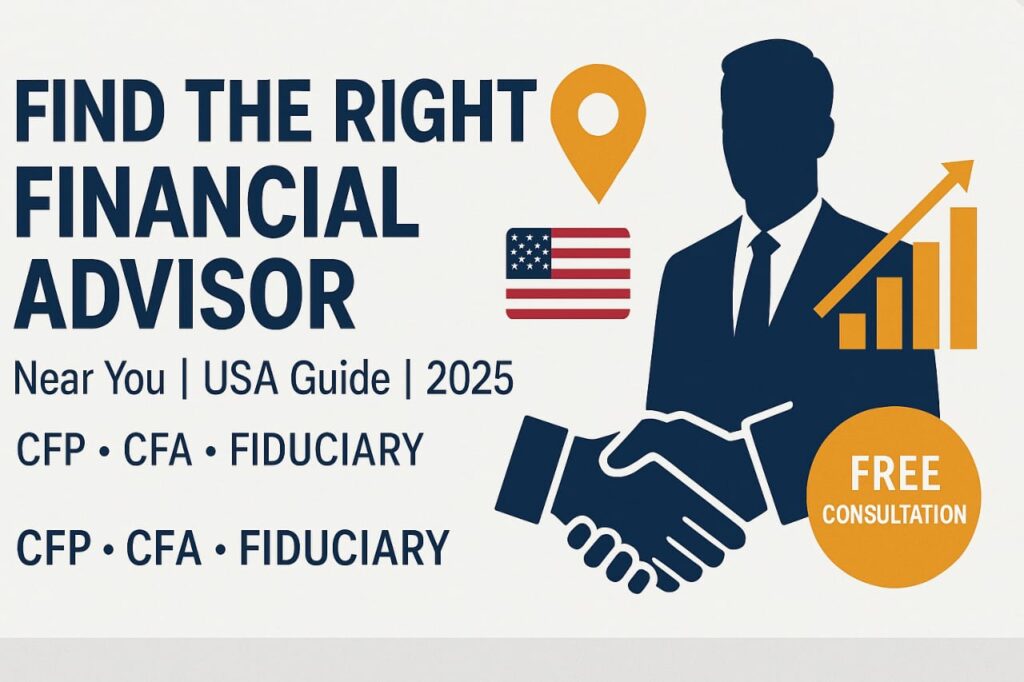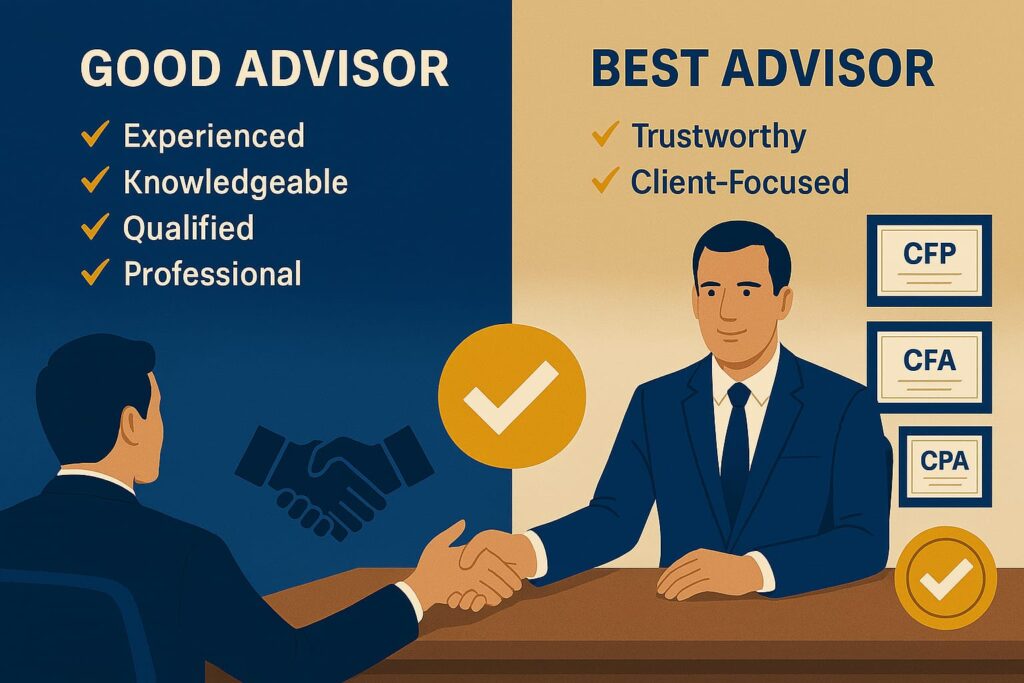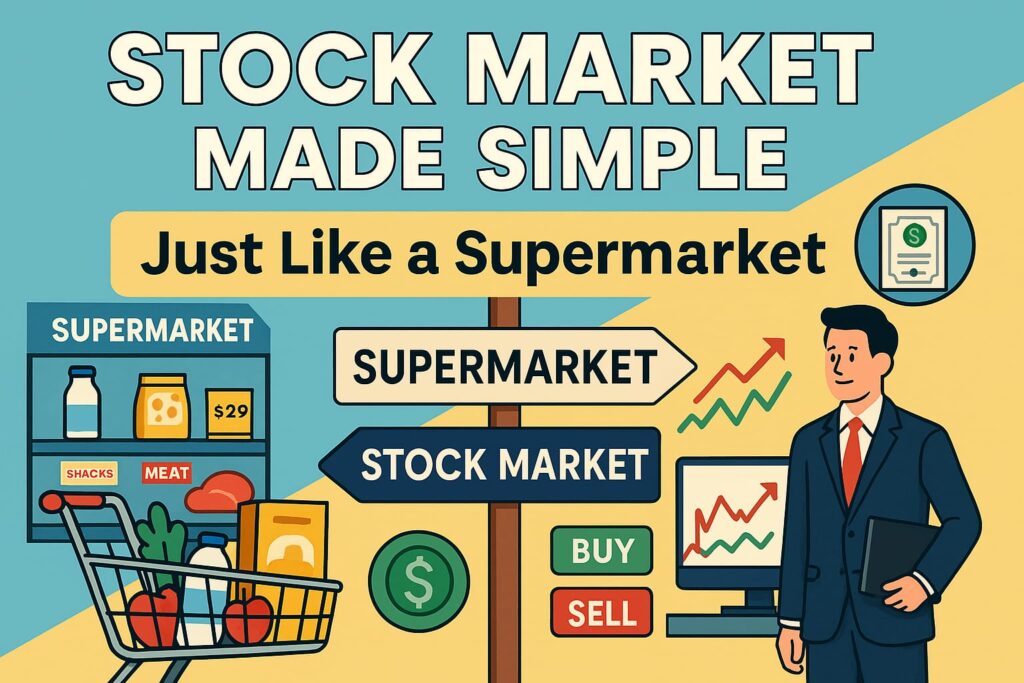
So here’s the thing. A couple of years ago, fresh out of college, I remember staring at my first real paycheck like it was a golden ticket. Then the panic set in. Rent, student loans, savings, maybe investing… should I be calling a financial advisor? Or was that something only people with yachts and wine cellars did?
If you’ve ever typed “financial advisors near me” into Google at 2 AM while stress-scrolling about money, you’re not alone. I’ve been there. A lot of my friends in their 20s and 30s have been there. The question is, do you really need one? Or is it just another adulting myth like “change your air filter every month”?
I’m sure you will benefit from this. (So let’s get started)
Why Location is Still Important (and When it’s Not)

Many financial advisors now work virtually, providing online services just like a traditional advisor would face-to-face. You need to decide whether you require face-to-face meetings or if virtual appointments are suitable for you. NerdWallet
Advisors who work face-to-face can offer local insights, which are helpful for understanding state-specific tax laws and exploring local investment opportunities.
Methods for Finding Financial Advisors
- Advisor Matching Services: Free online platforms that match you with vetted advisors based on your location and financial needs.
- Top Networks: Zoe Financial, Harness Wealth, and Wealthramp offer free consultations and also ensure that advisors have trusted certifications like CFP, CFA, or CPA. businessinsider
- Professional Associations: Search for certified advisors in trusted directories. The CFP Board, Financial Planning Association (FPA), and National Association of Personal Financial Advisors (NAPFA) allow location-based searches where you can find fee-only, fiduciary advisors. NAPFA
- Local Recommendations: Ask for advice from your friends, family, or tax preparer; it’s possible they know a trusted professional.
What Makes an Advisor “The Best” for You?

Choosing a financial advisor is not just about ticking off a checklist; it’s about building a relationship that will shape your future goals. The best advisor is one who, along with their knowledge, prioritizes your interests. When you are making your selection, these core factors will be a great help.
1. Credentials and Qualifications
Strong qualifications are proof of an advisor’s expertise. Certifications like Certified Financial Planner (CFP), Chartered Financial Analyst (CFA), or Certified Public Accountant (CPA) indicate that the advisor has undergone rigorous training and maintains industry standards.
2. Fiduciary Duty vs. Suitability
Not all advisors are fiduciaries. A fiduciary advisor has a legal and ethical obligation to act only in your best interest. In contrast, advisors who follow the suitability standard only suggest products that are a “reasonable” fit, even if they earn a higher commission on them. A fiduciary advisor can be a more transparent and reliable choice for you.
3. Fee Transparency
It is important to understand how the advisor is compensated. Common models include:
Fee-only: Hourly, flat-fee, or asset-based (generally 0.75%–1.25%). This model reduces conflicts of interest.
Commission-based: The advisor earns money by selling products, sometimes creating a risk of unnecessary recommendations.
Hybrid (Fee-based): A mix of both.
Robo-advisors have even lower fees, which can be a cost-effective option for beginners.
4. Personalization and Trust
The best advisor is one who doesn’t just provide a generic strategy but offers advice tailored to your unique goals (retirement, education planning, tax efficiency). At the same time, they should be able to explain complex concepts in simple terms and build trust.
Bottom Line: The best advisor is one who, along with credentials and a fiduciary duty, understands your financial goals and provides transparent and personalized guidance. In this journey, your comfort and trust are just as important as the “numbers.”
Useful Platforms for a “Near Me” Search
| Service | How It Helps |
|---|---|
| NerdWallet Advisory | Browse thousands of advisor profiles with location-based filters. (U.S. News Money) |
| U.S. News Advisor Finder | 140+ offices nationwide, offering both local and virtual appointments. (Edelman Financial Engines, InvestmentNews, Edelman Finance) |
| Edelman Financial Engines | Locate fee-only, fiduciary advisors by city or ZIP code. (NAPFA) |
| NAPFA “Find an Advisor” | Locate fee-only, fiduciary advisors by city or ZIP code.(NAPFA) |
| Ameriprise Financial | Search for advisors by ZIP code, with both in-person and online options. (not found via web; consider adding if sourced) |
Expert Tips for Your First Meeting with a Financial Advisor
If you are planning your first meeting with a financial advisor, it’s normal to feel a bit nervous. Believe me, I know; we’ve all been through this phase. But if you prepare yourself a little, you will feel more confident.
Here are some practical financial advisor tips that will help you make a better decision.
Understand Fee Transparency
It’s very important for you to understand the advisor’s fee structure. Is it hourly, flat, or asset-based? Also, ask them how the onboarding process works and how much they can customize your plan.
And I have personally felt that clients who clarify the fees and process upfront have a smoother and stress-free long-term partnership.
Check the Advisor’s Credibility
Be sure to ask whether the advisor is a fiduciary or follows the suitability standard and what their experience has been with clients like you.
If you want more information like this, then click here.
FAQs: About Choosing a “Near Me” Financial Advisor
How do I vet an advisor?
Start with a free consultation, check their certifications, ask about fees, and get recommendations.
What services will I get?
Most advisors help with investments, retirement, estate, tax planning, and debt management.
Is a virtual meeting possible?
Yes, most U.S.-based advisors offer secure online appointments
How much do I need a financial advisor?
Not everyone needs a financial advisor. If your finances are simple (a salary, a little savings, one or two goals), you can probably manage them yourself.
However, if you have a mix of investments, retirement planning, taxes, insurance, and estate planning, an advisor will help and save you from costly mistakes.
Is a physical office necessary, or are virtual meetings enough?
Today, many advisors work through Zoom, Google Meet, and phone calls. If you prefer a personal touch, go for physical meetings; otherwise, virtual meetings are completely sufficient. The important thing is communication and trust; if you can build that, everything will be fine.
What are Robo-Advisors?
A robo-advisor is an automated platform that manages your investments using algorithms.
They are cheap and convenient.
However, they do not provide personalized planning (like taxes or estate planning). A traditional advisor provides more holistic planning.
Why are comfort and communication style important?
Money is a sensitive topic. If an advisor doesn’t understand you or your communication styles clash, trust will not be built. You should feel comfortable with an advisor, like they are a “money coach.”
How do online platforms help?
NerdWallet / U.S. News Advisor Finder: These are useful for comparing advisors and checking reviews.
NAPFA: Provides a directory of fee-only fiduciary advisors.
These platforms give you a screening tool to get you started.
In a nutshell: If your finances are complex, a fiduciary, fee-only, CFP advisor might be the best option for you. Robo-advisors are low-cost but limited. And personal comfort and trust are the most important factors.
What should you prepare before meeting with a financial advisor
Income & Taxes
Recent pay stubs or proof of income
Last 2–3 years’ tax returns (Form 1040)
Assets
Bank statements (checking, savings)
Investment account statements (401k, IRA, brokerage, mutual funds)
Real estate/property details (if any)
Liabilities
Credit card balances
Student loans, car loans, mortgage statements
Insurance
Life, health, disability, and homeowner/renter insurance policies
Goals
Short-term: vacation, car, emergency fund
Long-term: retirement, kids’ education, home purchase
Questions for Advisor
Are you fee-only or commission-based?
Which investment plan will be best for my goals?
How much should I save for retirement?
What are the options for tax-efficient investing?

